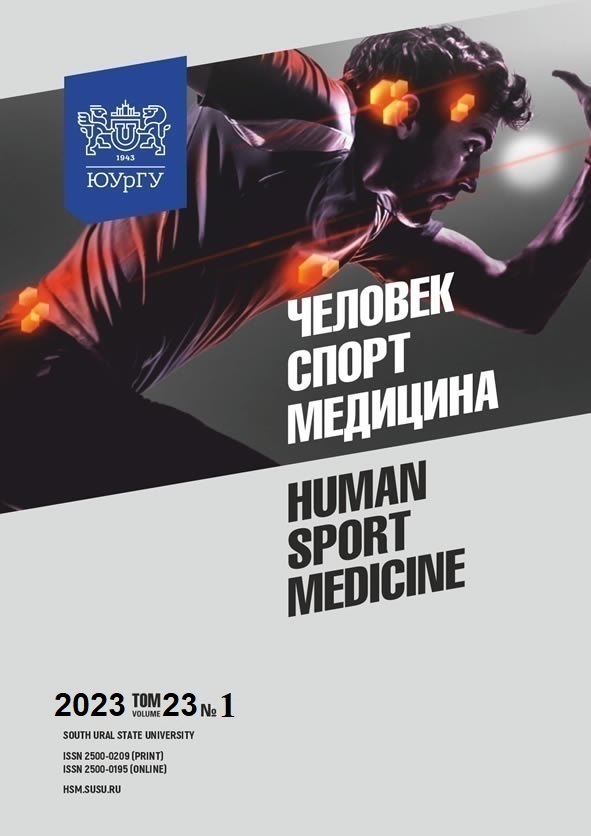SUBCLINICAL HYPOTHYROIDISM IN ATHLETES: A RETROSPECTIVE ANALYSIS OF THE DATA FROM A COMPLETE MEDICAL EXAMINATION
Abstract
Aim. The purpose of this study is to determine the prevalence of subclinical hypothyroidism in athletes and its impact on physical performance. Materials and methods. The paper presents a retrospective analysis of data from a random sample of outpatient records of 1.150 athletes of various sports, aged 15 to 36 years, who underwent a complete medical examination that included sports history data, biochemical, hormonal, and functional studies (echocardiography, bicycle ergometry), from which the testosterone to cortisol ratio was calculated. Results. The study showed a high prevalence of subclinical hypothyroidism in elite athletes, which accounted for 9.5% of the entire sample. Athletes with confirmed subclinical hypothyroidism showed a significantly higher heart rate under exercise, diastolic blood pressure at rest, and left ventricular end-diastolic dimension and volume (ECG data) characteristic of the athletic heart syndrome. There was a significant increase in the stroke volume of the heart as well as a slowdown in the recovery of the cardiovascular system after the bicycle ergometer test. A decrease in the testosterone-to-cortisol ratio in subclinical hypothyroidism indicated the dominance of catabolic processes and a decrease in energy supply for physical performance. Conclusion. The results obtained indicate the need for regular hormonal screening and continuous examination of athletes for timely correction of endocrine disorders and prevention of clinical forms of hypothyroidism and its complications as a result of high physical activity.
References
References on translit
Copyright (c) 2023 Human. Sport. Medicine

This work is licensed under a Creative Commons Attribution-NonCommercial-NoDerivatives 4.0 International License.















